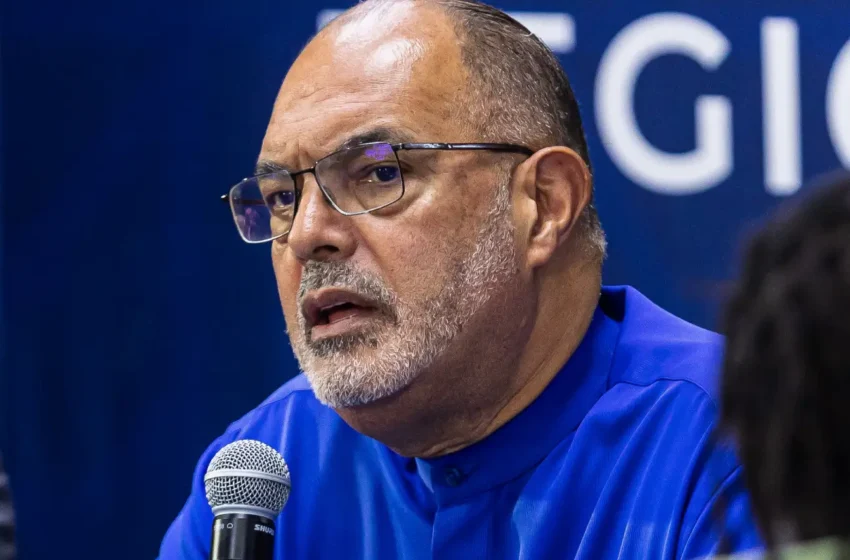A look at Edward Kieswetter’s tenure as SARS commissioner: Top 10 achievements

SARS Commissioner: Edward Kieswetter
Edward Kieswetter was appointed Commissioner of the South African Revenue Service (SARS) in May 2019. He took the helm at a crucial time when the institution was reeling from years of state capture and mismanagement, with its reputation and operational capacity severely damaged. His tenure has been marked by a determined effort to rebuild the organisation, restore its integrity, and modernise its approach to tax and customs administration. As he prepares to step down, let’s look at some of the top achievements of his time in charge.
1. Restoring Trust and Rebuilding Morale
Kieswetter’s main job was to rebuild SARS from the ground up. He focused on re-establishing a culture of professionalism, integrity, and excellent service. This involved stabilising the organisation’s leadership, reviewing disciplinary cases from the previous administration, and re-engaging with staff and stakeholders to restore morale and confidence.
2. Record-Breaking Revenue Collection
Under his leadership, SARS has consistently exceeded its revenue collection targets, even with the challenging economic climate and the COVID-19 pandemic. The organisation has regularly announced record-high tax collections, which are vital for funding South Africa’s public services and economic development.
3. Modernising Tax Administration
Kieswetter has been a champion of using technology to improve efficiency and make compliance easier for taxpayers. This has included the rollout of automated tax assessments, which have streamlined the filing process for millions of individuals. He has also overseen the development of specialised units to deal with new tax challenges, such as the digital economy and cryptocurrency.
4. Re-establishing Specialised Units
A key part of the rebuilding effort was the re-establishment of specialised units that had been disbanded or weakened. This includes the Large Business Centre (LBC) and the High Net Worth Individual (HNWI) unit, which focus on ensuring compliance among the country’s biggest companies and wealthiest individuals.
5. Improving International Standing
Kieswetter’s leadership has seen SARS regain its place on the international stage. He has held prominent positions in global tax and customs forums, including serving as Chairperson of the World Customs Organisation (WCO) and Vice Chairperson of the OECD Forum on Tax Administration (FTA). This has helped to build trust and facilitate international cooperation in combating illicit financial flows and cross-border crime.
6. Enhancing Taxpayer Engagement
Kieswetter has placed a strong emphasis on improving the taxpayer experience. He has prioritised making it “easy and simple” for taxpayers to comply with their obligations, while making it “hard and costly” for those who deliberately evade tax. This has included opening up lines of communication with business leaders and professional bodies to foster a more collaborative tax environment.
7. Strengthening Enforcement and Combating Illicit Trade
SARS, under Kieswetter, has stepped up its enforcement efforts. This is evident in the successful litigation rate, the cracking down on illicit trade, and the collaboration with other law enforcement agencies to tackle organised crime. The compliance programme has also contributed significantly to the fiscus.
8. Strategic Use of Data and Analytics
The organisation has made great strides in using data analytics and artificial intelligence to identify non-compliance and improve its risk assessment capabilities. This has allowed SARS to become more targeted and effective in its interventions.
9. Leadership in Global Customs
Kieswetter’s chairmanship of the WCO was a major achievement. During this time, he championed a vision of a “Smart, Modern Customs ecosystem” and oversaw the adoption of a new strategic plan focused on technology, resilience, and inclusivity. He also forged new bilateral agreements with countries like the United States, which are beneficial for South African exporters.
10. Laying the Foundation for the Future
As he prepares to leave, Kieswetter has laid a strong foundation for his successor. He has established a clear strategic intent for SARS, strengthened the institution’s governance, and implemented a transformation plan that positions the organisation for future challenges and opportunities. His focus on succession planning aims to ensure a smooth transition and the continued success of the revenue service.
Conclusion
Edward Kieswetter’s tenure as Commissioner of SARS will be remembered as a period of crucial stabilisation and transformation. He inherited an institution on the brink and, through a combination of strategic leadership, technological modernisation, and a renewed focus on integrity, has successfully steered it back to a position of strength. His legacy is not just in the record-breaking revenue figures, but in the rebuilding of a vital state institution and the restoration of public trust, both domestically and internationally. He leaves behind a more capable, modern, and respected SARS, well-equipped to face the challenges of the future.

